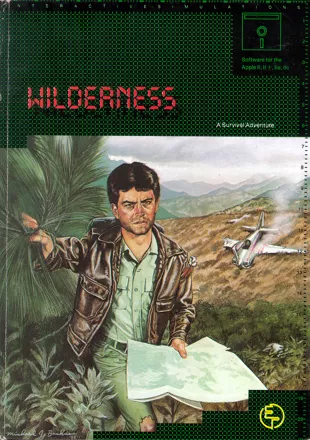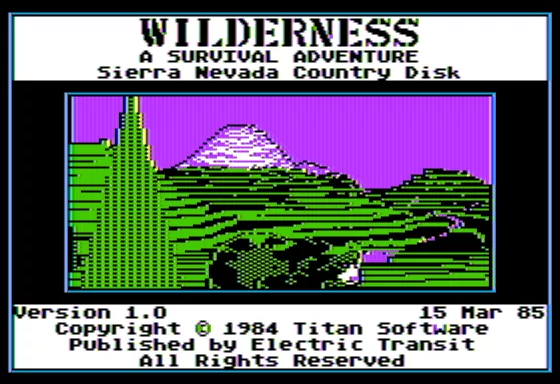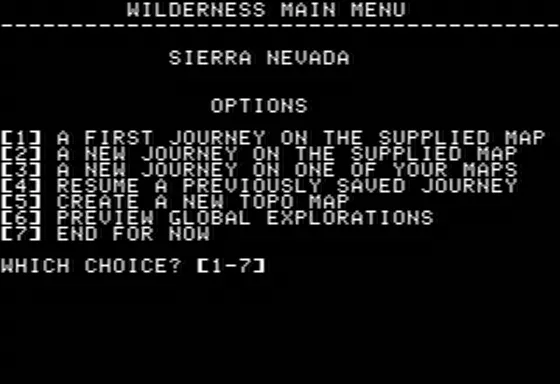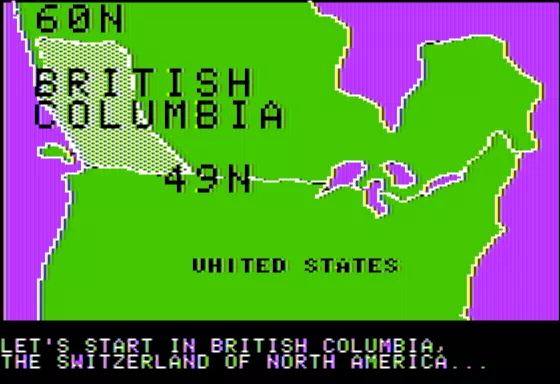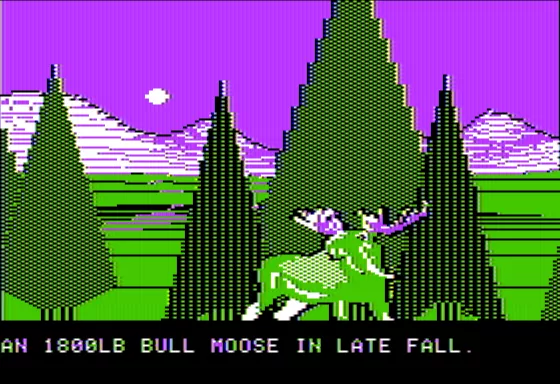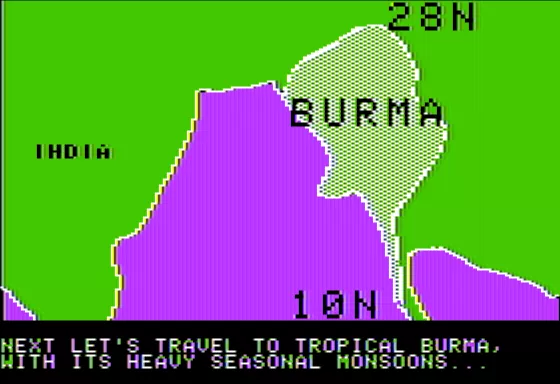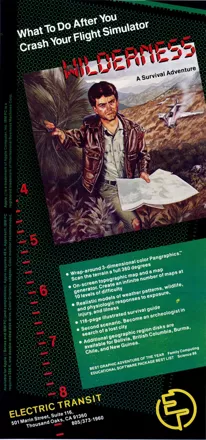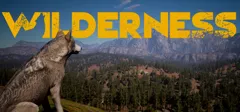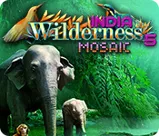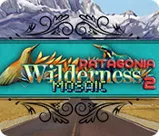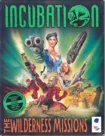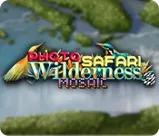Wilderness: A Survival Adventure
Description official description
Your small plane has crashed in the Sierra Nevada mountains. You are all alone in the snow and cold, but you manage to pull a topographic map from the wreckage of your plane. The map shows the location of a ranger outpost, your only hope for survival. But you could be anywhere on this map, an area "twice the size of the state of Delaware." To survive, you must determine your location and hike to the safety of the outpost.
The game provides six different information screens to aid you in your journey. The View screen shows a three-dimensional panorama of your immediate surroundings. The Topo screen is a two-dimensional map of the 90x67 mile area where you have crashed. Your first job is to figure out where you are on the map. In the View screen you can type commands (e.g., LOOK RIGHT, LOOK UP, PAN LEFT) to help orient yourself on the surrounding terrain.
The Status and Inventory screens give you reports on your physical condition and survival gear, respectively. The Help and Clue screens give you survival advice and hints, if you want them, but cost you points.
When you are ready to set out, you issue travel commands (e.g., WALK FOR 20 MINUTES) which move you in the direction you are facing (the View screen is redrawn when you reach your next location). To survive, you must also make use of your inventory and things in your environment. All interaction with the game is in the form of type-written phrases:
WEAR PARKA
USE GUN/KILL BEAR/USE KNIFE/SKIN BEAR
USE MATCHES/MAKE FIRE
USE FIRE/COOK BEAR/EAT BEAR
The game recognizes 300 different nouns and verbs to allow you to navigate, travel, make camp, use gear and supplies, prepare food, care for health and first aid, and make use of wildlife, plants, and weapons.
A second scenario is also available in which you play an archeologist in search of the Lost City of Gold. Here, you begin your journey with a "long-forgotten" map and several obscure clues. The game included a form to order additional geographic areas: Bolivia, Burma, British Columbia, Chile, and New Guinea.
Groups +
Screenshots
Promos
Credits (DOS version)
6 People
| Project manager, developed Pan-graphics, and created SmallDOS code, Wilderness operating system, and the simulation code |
|
| Simulation design and system engineering, algorithm development, and manual information | |
| Digitized topographic map generator | |
| Producer | |
| Wildlife and shelter graphics | |
| Final form of manual | |
| Information on wildlife habitats |
|
Reviews
Critics
Average score: 60% (based on 1 ratings)
Players
Average score: 3.9 out of 5 (based on 7 ratings with 0 reviews)
Be the first to review this game!
Trivia
Several experts contributed to the game’s design. Dr. James Palen, M.D. of St. Francis Medical Center, Cape Girardeau, Mo., contributed the medical algorithms. Professor John Kingsbury of Cornell University provided information on toxic wild plants. Dr. Lanny Miller of the Jet Propulsion Laboratory provided the thermal models. Kimball Garrett of the Los Angeles County Museum of Natural History provided information on wildlife habitats. Dr. Robert Wolff of the Jet Propulsion Laboratory conducted database research.
Analytics
Identifiers +
Contribute
Are you familiar with this game? Help document and preserve this entry in video game history! If your contribution is approved, you will earn points and be credited as a contributor.
Contributors to this Entry
Game added by George Martin.
Apple II added by David Mullich.
Additional contributors: David Mullich.
Game added December 15, 2001. Last modified May 29, 2024.


